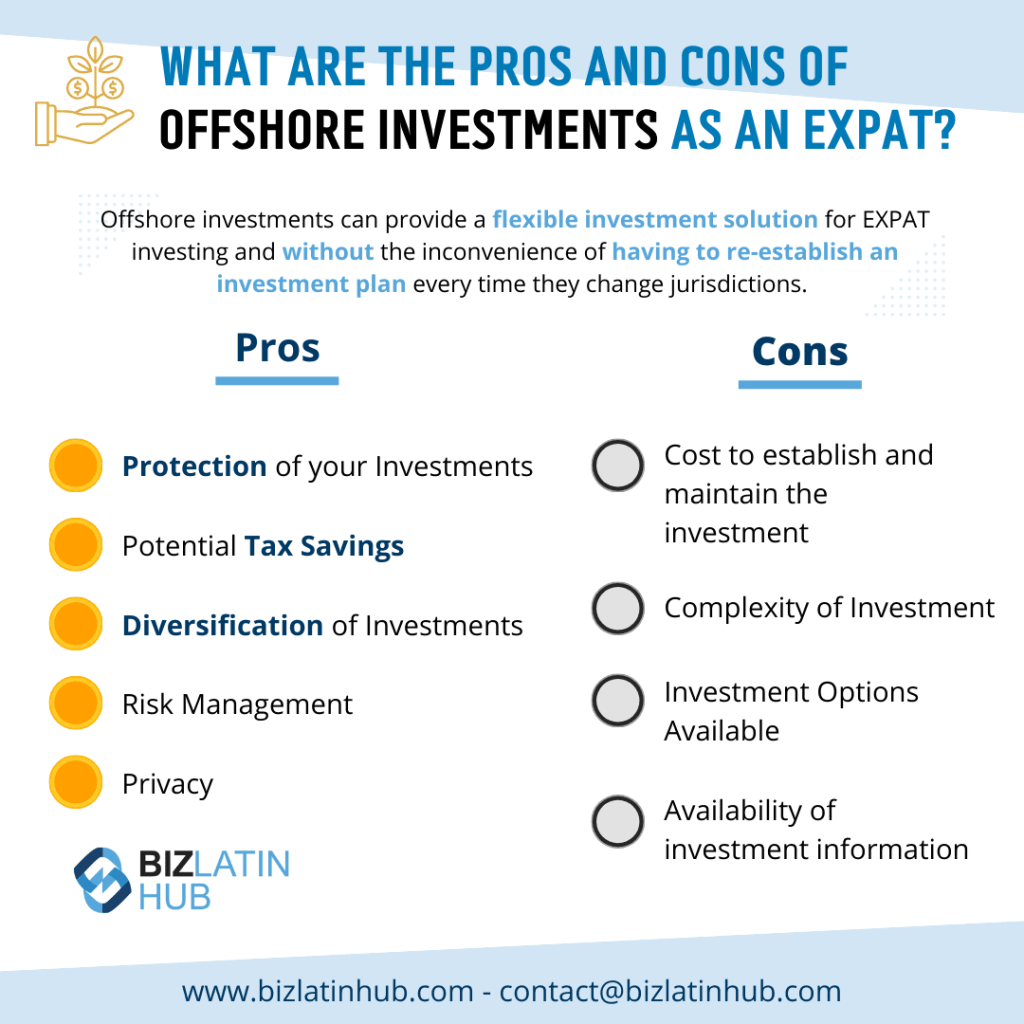All About Offshore Investment: Insights Into Its Benefits and Considerations
Offshore investment has ended up being an increasingly relevant subject for individuals seeking to expand their portfolios and improve monetary protection. While the potential benefits-- such as tax optimization and asset protection-- are engaging, they come with an intricate landscape of threats and regulatory challenges that call for cautious consideration. Recognizing both the benefits and the challenges is necessary for anyone pondering this investment technique. As we discover the subtleties of offshore investment, it comes to be apparent that educated decision-making is essential for maximizing its prospective advantages while minimizing fundamental risks. What elements should one prioritize in this intricate environment?
Recognizing Offshore Investment
In the realm of global money, recognizing offshore investment is crucial for individuals and entities looking for to optimize their financial portfolios. Offshore financial investment refers to the placement of properties in banks outside one's country of home. This practice is often made use of to accomplish various economic objectives, consisting of diversity, asset defense, and potential tax obligation benefits.
Offshore financial investments can include a large array of economic instruments, consisting of stocks, bonds, common funds, and realty. Investors might choose to establish accounts in territories recognized for their favorable governing environments, privacy legislations, and economic stability.
It is vital to identify that overseas investment is not naturally identified with tax evasion or illegal activities; rather, it offers legit objectives for lots of financiers. The motivations for taking part in overseas financial investment can differ commonly-- from seeking higher returns in industrialized markets to safeguarding properties from economic or political instability in one's home nation.

Nevertheless, possible investors must additionally know the complexities involved, such as conformity with worldwide guidelines, the need of due persistance, and recognizing the legal implications of offshore accounts. Overall, a comprehensive understanding of offshore investment is crucial for making educated financial choices.
Trick Advantages of Offshore Investment
Offshore financial investment supplies numerous essential benefits that can boost a capitalist's economic approach. This can significantly enhance overall returns on investments.
Furthermore, offshore financial investments typically provide accessibility to a wider series of investment opportunities. Investors can diversify their profiles with assets that might not be conveniently offered in their home countries, consisting of worldwide supplies, property, and specialized funds. This diversification can reduce threat and enhance returns.

Additionally, offshore financial investments can assist in estate planning. They allow investors to structure their possessions in such a way that decreases inheritance tax and ensures a smoother transfer of wide range to heirs.
Typical Risks and Obstacles
Buying offshore markets can provide numerous risks and difficulties that need mindful factor to consider. One substantial risk is market volatility, as overseas financial investments might be subject to changes that can influence returns dramatically. Capitalists must additionally know geopolitical instability, which can disrupt markets and impact investment efficiency.
One more challenge is currency risk. Offshore financial investments frequently entail deals in foreign currencies, and undesirable exchange price movements can wear down revenues or boost losses. Offshore Investment. Additionally, restricted access to reputable details regarding overseas markets can hinder educated decision-making, leading to potential mistakes
Absence of regulative oversight in some overseas territories can additionally posture threats. Capitalists may find themselves in settings where capitalist protection is marginal, raising the danger of fraud or mismanagement. Differing financial methods and cultural attitudes towards financial investment can make complex the financial investment process.
Regulatory and lawful Considerations
While navigating the complexities of offshore financial investments, recognizing the legal and regulatory landscape is vital for guaranteeing and safeguarding possessions compliance. Offshore financial investments are often based on a plethora of legislations and guidelines, both in the investor's home country and the territory where the financial investment is made. Therefore, it is important to carry out thorough due persistance to understand the tax obligation effects, reporting needs, and any lawful commitments that might develop.
Regulative structures can differ considerably in between territories, influencing whatever from taxation to funding demands for foreign financiers. Some nations may provide positive tax obligation programs, while others enforce stringent regulations that might hinder financial investment. Additionally, worldwide contracts, such as look at this website FATCA (International Account Tax Obligation Conformity Act), may obligate financiers to report overseas holdings, increasing the requirement for check my reference transparency.
Capitalists must additionally recognize anti-money laundering (AML) and know-your-customer (KYC) regulations, which require banks to validate the identity of their customers. Non-compliance can cause serious penalties, including fines and limitations on investment tasks. Therefore, involving with lawful specialists focusing on worldwide financial investment law is necessary to navigate this intricate landscape successfully.
Making Educated Choices
A critical strategy is necessary for making notified choices in the realm of overseas investments. Recognizing the complexities entailed calls for detailed study and analysis of different elements, including market patterns, tax ramifications, and lawful frameworks. Financiers have to analyze their danger resistance and financial investment goals, guaranteeing placement with the special qualities of offshore possibilities.
Carrying out due diligence is paramount. This includes assessing the reputation of organizations, financial experts, and financial investment vehicles. Looking at the governing setting in the chosen jurisdiction is crucial, as it can substantially influence the security and success of investments. In addition, staying abreast of geopolitical developments and economic problems can provide valuable insights that notify investment methods.
Involving with experts who specialize in offshore investments can likewise boost decision-making. Offshore Investment. Their knowledge can direct capitalists through the complexities of international markets, assisting to determine profitable chances and possible risks
Inevitably, educated decision-making in overseas financial investments rests on a versatile understanding of the landscape, a clear expression of individual objectives, and a commitment to ongoing education and learning and adaptation in a dynamic global atmosphere.
Final Thought
Finally, offshore investment provides considerable advantages such as tax optimization, asset security, and accessibility to international markets. It is important to acknowledge the affiliated threats, consisting of market volatility and regulatory obstacles. A thorough understanding of the lawful landscape and diligent research is crucial Related Site for effective navigating of this complicated arena. By dealing with these factors to consider, financiers can efficiently harness the advantages of offshore investments while mitigating potential drawbacks, eventually leading to notified and strategic economic decisions.
Offshore investment supplies numerous key benefits that can enhance a financier's financial strategy.In addition, offshore investments frequently supply access to a more comprehensive range of investment opportunities. Varying economic practices and social attitudes toward financial investment can make complex the investment process.
